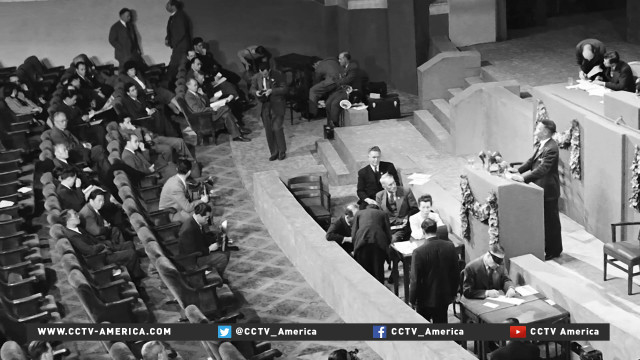China is a founding member state of the United Nations.
Our United Nations correspondent Liling Tan took a look back at the world body and its influence over the past 70 years.

In 1945, after two devastating world wars, allied powers fresh from a costly victory decided the world could not afford another war.
And so, on October 24,1945 the United Nations was born to prevent war, uphold human rights, and promote social progress.
It began with 51 member states but as colonies dissolved and new nations emerged, the number has grown to 193. Each country has a seat at the U.N. General Assembly Hall.
Where the General Assembly is the U.N.’s main body, the Security Council is its mightiest arm.
It can impose sanctions and embargoes, decide when to use military force, and refer war crime cases to the U.N.’s International Criminal Court.
The Secretariat is the nuts and bolts of the whole operation, helmed at the top by Ban Ki-moon, the U.N.’s eighth Secretary General.
In its lifetime, the U.N. has been divided by the Cold War, tested by conflicts in the Middle East, and challenged by unrest from Africa to the Asia-Pacific.
It helped to end apartheid but failed to stop genocide in Rwanda and Cambodia; it persuaded some states to give up nuclear weapons, but failed to keep others from developing them.
Critics argue that the U.N. leadership needs an overhaul to better represent new influential nations, reflect modern geopolitics and address the new era of conflicts.
 CGTN America
CGTN America
